- Home
- Kelley Armstrong
Life Is Short and Then You Die Page 6
Life Is Short and Then You Die Read online
Page 6
I can’t afford to let them go.
She nods. “My story’s not so different.”
I glance around the workshop. My mind is like a squirrel in a cage, scrabbling, fighting, twitching. I sink my fingertips into my scalp and force myself to think. She needs three things: to exit the Female Department into the larger penitentiary; then to leave the penitentiary itself; and finally to travel far enough that she can disappear, maybe across the border. The first two things must be accomplished in the next quarter hour, at most. The last must happen with as little sensation and public knowledge as possible. Put like that, the task is impossible.
“There aren’t many things that come in and out of the Female Department,” I say. “Milk and meat, but they were delivered this morning. Potatoes and cabbage are already in the cellar.”
“What about the laundry?”
“The guards’ clean laundry goes out tonight.”
“In a basket?” She’s obviously thinking of curling herself inside.
I shake my head. “They call individually to collect their uniforms.” Dead end, I think, then wince at the pun and glance at the rat-catcher’s body.
Then I look again. His black-and-white cap lies near the pool of blood, but it appears unstained. Could she use that somehow? Stupid, I tell myself. Anybody who steps outside the gates in a convict’s uniform will be arrested within minutes.
“What about going upstairs?” she demands. “Stealing a change of clothes?”
“From Matron?” None of us are issued cloaks or hats; they are considered an incentive to escape. “She lives on the same floor as our cells, but her quarters are probably locked. And the cells aren’t empty—Wabuck and Bollard would see you up there. They scream at unfamiliar faces.”
“When does the chaplain visit?”
“Tuesdays and Fridays. But even if he were here right now, he’s hardly going to escort you out on his arm.”
She sighs, slumps.
My gaze falls on the green melton wool I’d laid out so carefully on the cutting table. It’s blood-spattered and torn, although not more so than Corrigan would have been, had she not defended herself. Still, even if it were somehow whole and undamaged, it’s far too dazzling a color. Wearing it, she’d be visible for miles against the ice and snow.
So … that’s it, then? A life for a life. The rat-catcher will receive “justice.” And in a few months’ time, Corrigan will be so thoroughly forgotten she might never have existed. That’s always been my aim: to be invisible, silent, a shadow. But Corrigan …
“Tell them you acted in self-defense,” I say. “I’ll back you up.”
“Like they care.”
“Wasn’t it?”
Her mouth twists. “Of course. But he’s still dead.” She shrugs. “I’ll never be sorry for that.”
“So this is it?”
She looks annoyed. “Unless you’ve a key I don’t know about…”
I blink at her. Something clicks in my brain. It’s as though she’s opened a gate in my mind’s eye, and I suddenly see one narrow path winding into the distance.
“I know who does,” I say. “Come on.”
* * *
The laundry area has a sharp, sweet smell—lye soap, clean fabric, clear starch. Beneath that, there’s the ever-present whiff of sweat, unwashed hair, and dung that pervades the prison. In the unlit room, the guards’ newly laundered uniforms dangle from pegs like a row of ghosts: wool jackets and trousers sponged and brushed, shirts ironed.
I make straight for one of the smaller sets. As Corrigan shucks her apron and dress, I select a collar and a pair of cuffs and attach them to the shirt. My fingers tremble and it takes me long moments of fumbling to manage the tiny fasteners.
A minute later, footfalls thunder down the hall. Corrigan and I flatten ourselves against the wall, concealed—we hope—by the laundered uniforms. It’s dim, but not dark, in here. The door flies open, bangs the opposite wall. My stomach clenches.
“Clear,” says a male voice.
The door swings shut. Footsteps pound away. Corrigan and I exchange a look. A minute later, there’s a cry of alarm, hoarse shouting of orders. They’ve found the rat-catcher’s body. Time has nearly run out.
She pulls on a pair of woolen trousers. “Once you’re through the main gate,” I say, “the lake’s immediately south. This time of year, it’s frozen. You can walk all the way to Wolfe Island, and then over to New York State.”
She buttons the shirt with fingers that are nearly steady, straightens for inspection. “All right?”
I look at her critically. “Not bad.” The shingled hair is a distinct advantage. Once the woolen jacket with epaulets is buttoned up, she makes a surprisingly convincing man.
We hear them enter the tailoring room, and, in a short while, Matron’s melodramatic shrieks are replaced by a male voice bawling for order, for all guards on duty to report to the Female Department, for the great bell to be rung. My gut tightens. I hadn’t thought of that.
“What?” Corrigan is watching my expression.
“They’re going to ring the main bell, the one over the front gates. It’s a signal for all off-duty guards to turn out. Emergency measures. The whole place will be swarming in about ten minutes.”
Her face tightens. “Too late?”
I try to think clearly. “The main gates will be open. Dozens of men rushing in. Lots of them not in uniform. I think it’s your best chance.”
She draws a deep breath. “Show me the way.”
We edge toward the door, listen to a lone set of boots pound down the hall, on their way out of the Female Department. I catch only a quick glimpse of the guard but, from his immense bulk, it looks like Aldridge. Intimidating to look at, but he’s actually a bit slow on the uptake. Perfect.
“Follow him,” I say. “When you get out of this wing, go straight for the gates. Tell the guard you’re going to fetch a surgeon.”
She pauses for a second. “Going for a surgeon, sir.” Her voice is suddenly husky, gruff. Almost masculine.
“Good. That was really good.”
She grins at me suddenly, a smile so bright it’s blinding. “What’s your name?”
I frown. “Pierce.” She ought to know; she’s heard it enough times.
She shakes her head. “I’m Mary. Mary Margaret Corrigan.”
Oh. Oh. “S-Sarah Jane Pierce.” My given name feels strange in my mouth, like a treasure I’ve hidden for so long that I scarcely recognize it. I say it again, just to affirm its truth. “Sarah Jane.”
She pulls me into an embrace: strong arms locked around my shoulders, hot cheek pressed against my ear. I stumble against her, overbalanced and helpless, and dangle there for a long moment, feeling clumsy and embarrassed and … can it be … happy, oh god, something very close to happy. I fold my arms around her, rest my tingling hands on her warm back. Her shorn hair prickles my eyelid. “Sarah Jane,” she says. “Thank you.”
It takes a long time to find my voice. “Mary. Good luck.”
She releases me and nods once, that gleam in her eyes again. We both know she’ll need plenty of luck just to survive until nightfall. This isn’t about escape so much as resisting to the very end.
We walk together to the doorway. The corridor is clear, although not for much longer. We nod to each other, once. She turns right, moving at a swift march. I watch her stride down the hall, listen for trouble. Nothing. Aldridge must have left the door to the Female Department unlocked for his return.
Outside, high above the prison walls, the great bell begins its clamor. I picture Mary striding beneath it, out of the main gates, turning left, then left again, over the vast frozen expanse of Lake Ontario.
I’m tempted to follow her lead. It’s a yearning beneath my skin, stronger and more vivid than almost anything I remember in my life. There are uniforms in my size. I could try my luck. I’m young, strong, healthy. We’d each have a better chance of making it if the police and the public had to search for two
escaped convicts at once. I finger the thick wool of a guard’s jacket. Do I still have time?
I untie my apron. Then, quite suddenly, reality bites deep, into my bones. I’ve been at the penitentiary for six years. All the guards know my face. How could I ever hope to walk out the main gate and not be recognized? Even if the guards are distracted, how could they fail to notice my braided hair? Most frighteningly of all, could I hide from the police for the rest of my short life? I couldn’t ever see my mother; her house would be the first place they searched.
I’m panting. I’ve never felt so trapped. This is Mary’s doing. If not for her, I’d be just another caged animal that doesn’t notice when the door is left open. But because of that wild light in her eyes, I’ve glimpsed the larger world.
Do I have a choice? I suppose I still do. I could take an outrageous risk and perhaps die free. Or I could keep on as I am, hiding in plain sight. Re-bury Sarah Jane for another year. Maintain the façade of Pierce, 9207. Matron’s lapdog, dressmaker, reformed thief.
To my right, I hear running footsteps, gruff commands. I picture the wide-open gates, the empty fields of snow and ice that lie beyond, the sensation of moving forward of my own free will. I want it all. I want it so much.
I take a deep breath.
I retie my apron.
I turn left.
HISTORICAL NOTE
Sarah Jane Pierce, inmate 9207, was the youngest female inmate ever incarcerated at Kingston Penitentiary. She disappears from historical view after completing her prison sentence in 1885, but most of the details I give in the story are drawn from official records. The names of Sarah Jane’s fellow inmates—with the exception of Mary Margaret Corrigan—are borrowed from the penitentiary register of 1883–84.
When describing the inmates’ racial backgrounds, I’ve chosen to use current terminology. Words are powerful. My thanks to Heidi Heilig and Jessica Plummer for their perspectives on this subject.
Cameron Willis and David St. Onge, of Canada’s Penitentiary Museum, very generously shared their research and steered me toward the most salient sources. They are historians; I am not. The liberties I’ve taken with historical gray areas are, of course, entirely my responsibility.
DADDY’S GIRL
By Melissa Marr
The body isn’t hidden. It’s on one of the loungers that lines the edges of the badly aging pool. Khaki shorts. A towel thrown over him like a blanket. Against the night, it’s hard to tell the color. Dark, but not specific on the actual color.
Standing next to him, I can see that the towel is dark because it’s soaked in red.
In some ways, the body seems almost like part of the landscape. Everything at Riverview Resort looks like it’s leaning toward death, the body just got there sooner than its surroundings. The cement around and in the pool is cracked—and obviously has been for a while—and the diving board is rusted to the point that each dive seems likely to snap the bolts. For the past week, I’ve watched people get up on it. I couldn’t look away. I wore dark sunglasses, of course, but I had to watch. Just in case.
Before coming here, I’d never been up close to a recently dead person—but I’d imagined it. I watch a lot of crime shows, and I imagine being in the story. It’s important to experience new things. My father used to say that, so I try new things every chance I get. Like coming to the resort with the Women in Robotics club. Like joining the club in the first place. Or like standing next to a dead guy.
Dead guy. Lame resort. Surprisingly interesting club. It has really been a good month for new experiences.
Still, the resort is awfully worn out. The robotics group didn’t really do their research on where we could stay, but they mostly seem not to mind. I mind. The lounger where the dead guy is resting is as decrepit as the rest of the resort. Hot sun, minimal shade, and too many years of fat asses has resulted in sagging, torn chairs. Only one chair is occupied at 3 A.M., though. That’s the problem. That one chair. That one dead guy. I mean, the new experience part is important. I’m studying him, taking mental notes. The consequences part is a little less exciting. I know I need to go before there are consequences, but I’m fascinated.
He’s the first dead man I’ve seen up close and fresh. I can’t seem to move away. Hell, I can’t even look away.
He was a few years older than me. I don’t remember his name right now. James? Jason? Jackass? His name is immaterial. What matters is that there is a dead body next to me, and I’m staring at it. It smells bad. No one really talks about that in the crime shows. Death stinks.
I’m still standing here, though.
I touch him. Maybe that’s weird, but I want to know how a dead man feels. I need to know. They don’t tell you that in the show, either. He feels … different, I guess, than what I expected. Harder, but still fleshy. It isn’t like the bodies at a funeral home. Those bodies always feel weirdly like I imagine wax figures would feel. I’ve been to a lot of viewings over the years, trying to figure out what death feels like. The bodies in coffins don’t ever feel like they used to be humans. Maybe it’s the embalming, or maybe it’s because they were already dead for a while. I’m not sure. They feel different, though, than the dead guy on the lounger. That part I know for sure.
Now.
I am poking his cheek one last time—really, just one last time—when someone asks, “What are you doing?”
“Nothing.” I pull my hand away from the dead man’s face. I’m not done, but touching a dead man makes me look guiltier than I’d prefer. Guilty people end up in cages. Hospitals. Jails. Boxes in the ground. My dad taught me that, too. Never look guilty. Never let people know if you are. He screwed up that last part—and now it’s just me and my mother. She’s nervous a lot, and as much as I want to take care of her, I sometimes wish she’d stop jumping at every noise.
I’m much calmer than she is.
I look at the speaker, the boy who wants to know why I’m next to a dead man, and put my hand back in my pocket, trying to look casual and calm. I’m not sure that casual and calm is easy to feign when I’ve been prodding and patting the cheek of a dead man. I’m smart though. Like my father. That helps.
The boy stays back in the shadows between the buildings. He’s not hiding, but he’s in the dark, protected from wandering eyes by the shelter of worn and stained buildings. It’s smart, too. I like him a little for it.
Despite the shadows, I know who he is. I don’t need light to recognize him. During the past three days at the so-called resort, I’ve seen him around. Heard him, too. The pipes on his motorcycle make his arrivals and departures noticeable. It’s loud and fast, but the motorcycle looks like it was pieced together, crudely assembled like Frankenstein’s monster. The boy is low budget, and has a ride to match.
Sadly, he’s not as dangerous as the rest of them think—and I prefer danger. My therapist, Elaine, says that there’s a way to learn to overcome that urge, but when I date someone … I just … need the kick of adrenaline. Elaine thinks that something in my “formative years” has created an unhealthy craving for violence. She’s not wrong, but we don’t discuss what in my life made me feel that way.
Standing there, though, staring at the boy with the obviously pieced-together motorcycle, I feel that spark. Smart, dangerous. He reminds me of my father.
“You, Barbie, what are you doing?” His voice isn’t loud, not whispering exactly but it’s pitched low enough for me to realize he wants privacy.
I match his volume. “My name isn’t Barbie.”
My theory before this moment was that he was boring, not worth my time. A toy if I got restless, but nothing more. Now that I’m standing in the dark with a stranger and a corpse, I’m reevaluating his potential.
“What are you doing here?” I take a step closer, but he doesn’t react. “My name isn’t Barbie, by the way.”
He shrugs. Honestly, now that I look at him, I realize that he’s the most attractive part of Riverview Resort. They ought to put him in the photos in their broch
ure. Modern day, full-on, Riverview Resort is seriously low budget. Nothing to do but hike or fish or sit around the aged-out, broken pool. The dead guy is the most exciting part of the trip so far—but looking at the boy in front of me, I think there could be something more to him.
“Did you kill him?” I ask, gesturing at the dead guy as I walk closer.
Motorcycle guy flinches at the accusation. “No.”
I bite back a smile. He’s watched all of us like we were fish in a barrel, and he’s been a bored grizzly. One by one, my friends were all but throwing their bikini tops at him at any hint that he’d be receptive. So far, three of them had tried—and failed. Now? He’s watching me like I might be the grizzly. I like feeling this powerful.
“Well, I didn’t kill him,” I say.
“Not my business if you did.”
“I found him here,” I add.
Motorcycle guy shrugs. “Don’t care.”
“Seriously, I just came to get some chips.” I motion toward the little shack—currently closed—where chips, bad coffee, and soda are sold during the day. It’s the middle of the night, and I suppose I might look daft enough to think there would be anything open here at this hour. Maybe. Not likely. It’s better than the truth, though. Sometimes the truth is awfully inconvenient. Elaine says it’s okay to avoid conflict, and that’s what I’m doing.
The guy stares at the corpse for a moment and then looks back at me. I remind myself to be patient, to avoid panicking, to let him take his time to figure out what he’s going to do. Be calm. That’s the hardest part, training myself to resist those flickering feelings.
“I’m Marie,” I say. It’s not my real name, but when I meet boys, it’s the one I use. I study him as he watches me. “What’s your name?”
“Ed.” He meets my eyes, and I suspect he’s lying as much as I am. I think I might like him a bit more in that moment. Dangerous Ed. A killer, perhaps. I think maybe that’s what it would look like if someone walked up to us.

 The Calling
The Calling Darkest Powers Bonus Pack
Darkest Powers Bonus Pack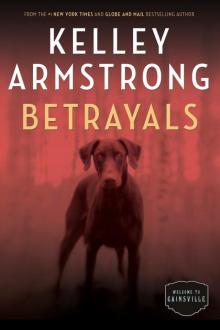 Betrayals
Betrayals Sea of Shadows
Sea of Shadows Rough Justice
Rough Justice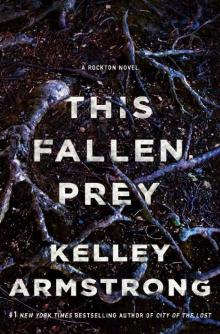 This Fallen Prey
This Fallen Prey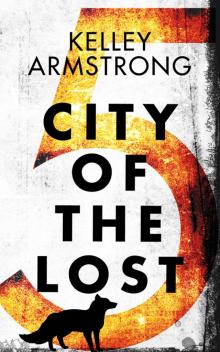 City of the Lost: Part Five
City of the Lost: Part Five Perfect Victim
Perfect Victim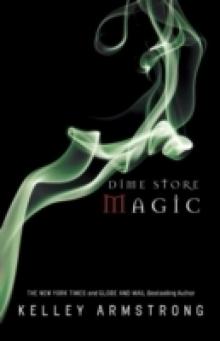 Dime Store Magic
Dime Store Magic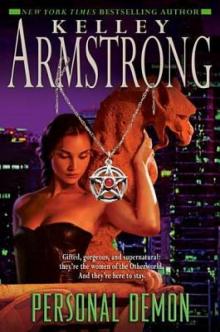 Personal Demon
Personal Demon Haunted
Haunted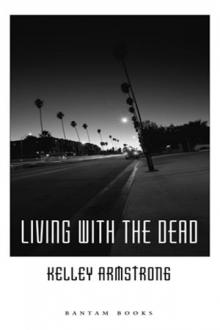 Living With the Dead
Living With the Dead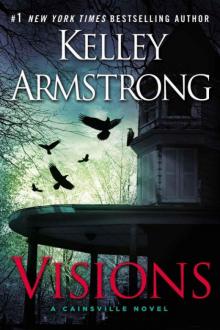 Visions
Visions The Summoning
The Summoning Broken
Broken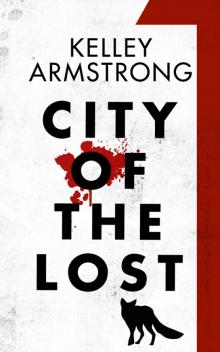 City of the Lost: Part One
City of the Lost: Part One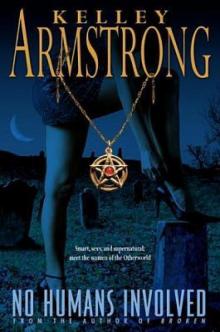 No Humans Involved
No Humans Involved The Awakening
The Awakening The Reckoning
The Reckoning The Gathering
The Gathering Bitten
Bitten Thirteen
Thirteen Gifted
Gifted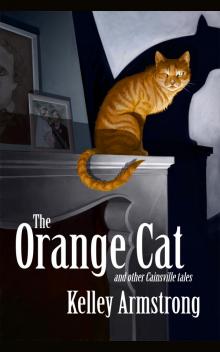 The Orange Cat and Other Cainsville Tales
The Orange Cat and Other Cainsville Tales Darkest Powers Bonus Pack 2
Darkest Powers Bonus Pack 2 Rituals
Rituals Waking the Witch
Waking the Witch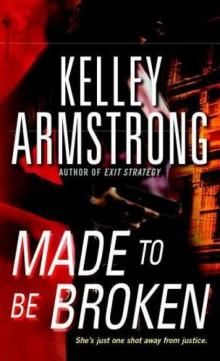 Made to Be Broken
Made to Be Broken Lost Souls
Lost Souls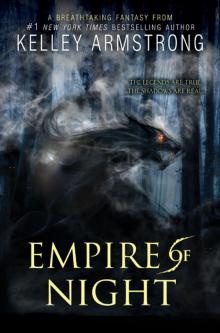 Empire of Night
Empire of Night Wild Justice
Wild Justice Double Play
Double Play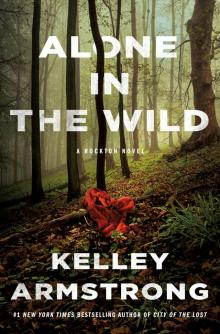 Alone in the Wild
Alone in the Wild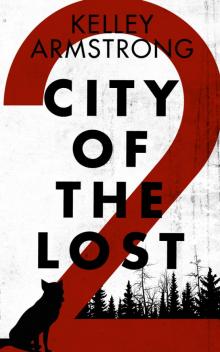 City of the Lost: Part Two
City of the Lost: Part Two A Stranger in Town
A Stranger in Town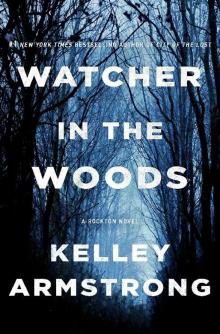 Watcher in the Woods: A Rockton Novel
Watcher in the Woods: A Rockton Novel Atoning
Atoning Spellbound
Spellbound Wolf's Bane
Wolf's Bane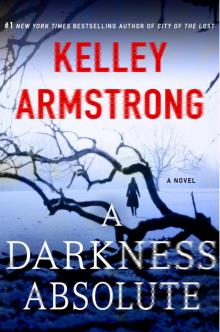 A Darkness Absolute
A Darkness Absolute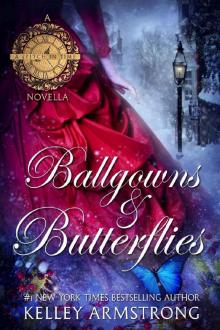 Ballgowns & Butterflies: A Stitch in Time Holiday Novella
Ballgowns & Butterflies: A Stitch in Time Holiday Novella Wherever She Goes
Wherever She Goes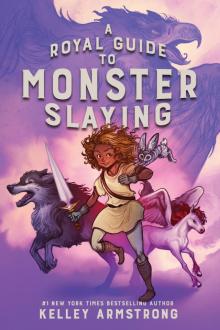 A Royal Guide to Monster Slaying
A Royal Guide to Monster Slaying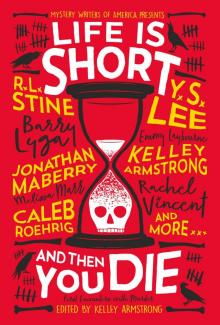 Life Is Short and Then You Die
Life Is Short and Then You Die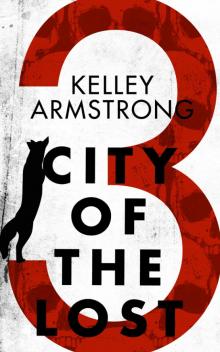 City of the Lost: Part Three
City of the Lost: Part Three Frostbitten
Frostbitten A Stitch in Time
A Stitch in Time Industrial Magic
Industrial Magic Wherever She Goes (ARC)
Wherever She Goes (ARC) Snowstorms & Sleigh Bells: A Stitch in Time holiday novella
Snowstorms & Sleigh Bells: A Stitch in Time holiday novella Exit Strategy
Exit Strategy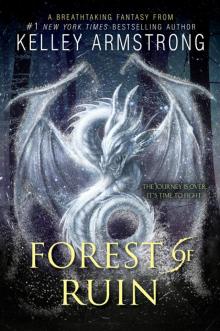 Forest of Ruin
Forest of Ruin Cursed Luck, Book 1
Cursed Luck, Book 1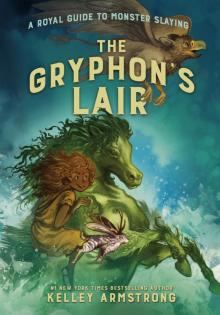 The Gryphon's Lair
The Gryphon's Lair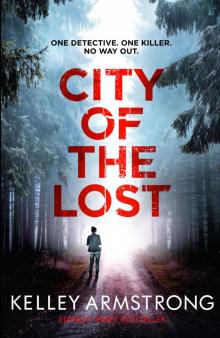 City of the Lost
City of the Lost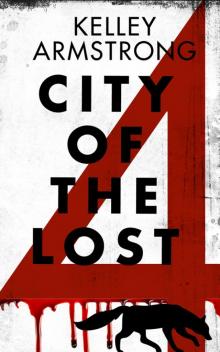 City of the Lost: Part Four
City of the Lost: Part Four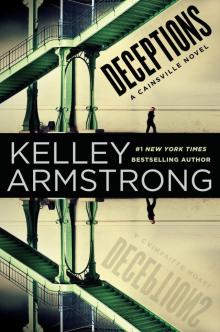 Deceptions
Deceptions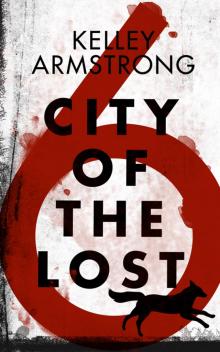 City of the Lost: Part Six
City of the Lost: Part Six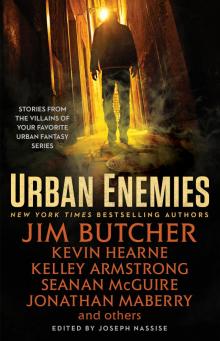 Urban Enemies
Urban Enemies Stolen
Stolen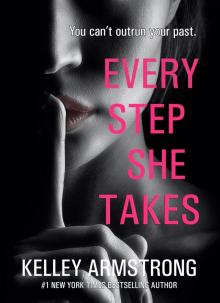 Every Step She Takes
Every Step She Takes Portents
Portents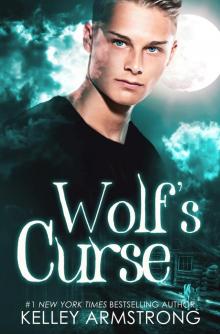 Wolf's Curse
Wolf's Curse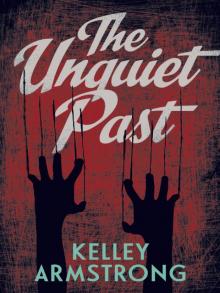 The Unquiet past
The Unquiet past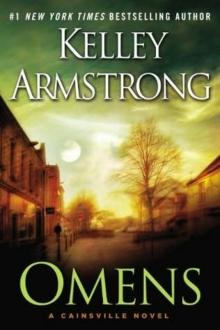 Omens ct-1
Omens ct-1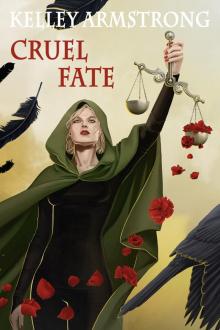 Cruel Fate
Cruel Fate The Calling dr-2
The Calling dr-2 The Awakening dp-2
The Awakening dp-2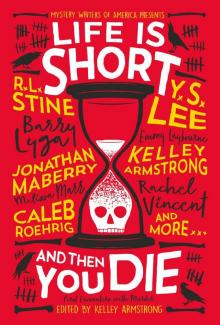 Life Is Short and Then You Die_First Encounters With Murder From Mystery Writers of America
Life Is Short and Then You Die_First Encounters With Murder From Mystery Writers of America Goddess of Summer Love: a Cursed Luck novella
Goddess of Summer Love: a Cursed Luck novella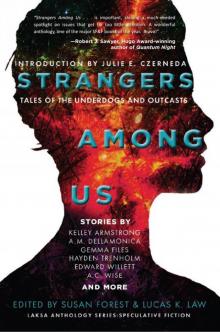 Strangers Among Us
Strangers Among Us The Gathering dr-1
The Gathering dr-1 The Rising dr-3
The Rising dr-3 The Summoning dp-1
The Summoning dp-1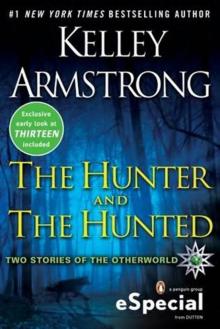 The Hunter And The Hunted
The Hunter And The Hunted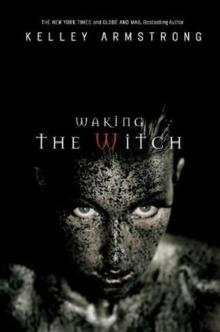 Waking the Witch woto-11
Waking the Witch woto-11